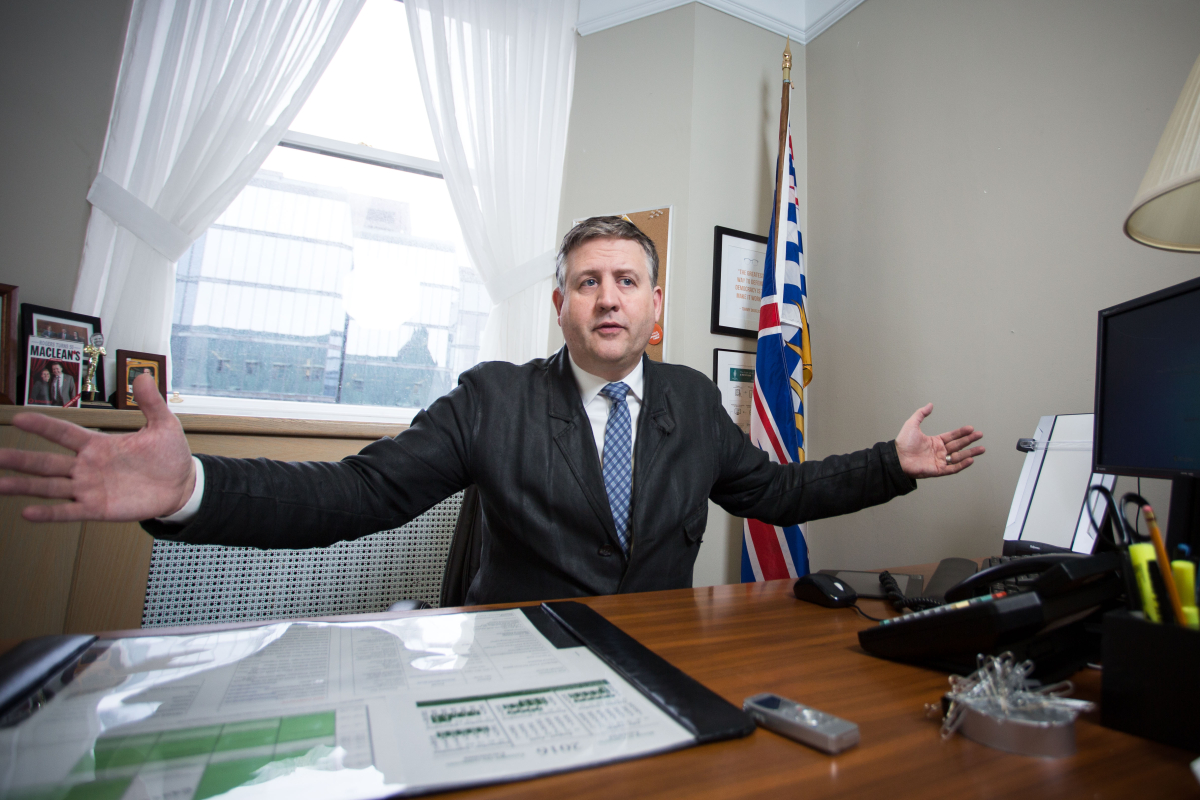Support strong Canadian climate journalism for 2025
The National Energy Board rolled out a new interactive online tool this week to help concerned citizens navigate the mountain of documents it holds on the Trans Mountain pipeline expansion.
The online tool allows users to track Kinder Morgan Canada's progress in meeting 157 mandatory conditions that it must deliver on if it wants to proceed with $7.4 billion plan to twin the 1,150-kilometre Trans Mountain pipeline between Strathcona County near Edmonton, Alberta, and Burnaby, B.C.
Technically-minded, computer-savvy citizens can use the tool to get easier access to documents outlining how the company says it's meeting those conditions covering everything from barn owl nests to emergency preparedness.
But a longtime opponent of the project, Burnaby South MP Kennedy Stewart, calls it “a joke.”
“To add insult to injury they add this innovation after it’s too late for anybody to have any real input into the project,” said Stewart, an NDP MP, in a telephone interview Thursday.
“Once the local communities that are concerned about this project take a look at the tool, I’m sure they’ll be in shock about how out of touch this organization is.”

Stewart has previously noted that many citizens were in the dark about how to get information about the pipeline. He told National Observer last month he was getting calls from constituents who were only learning for the first time that the pipeline would be going through or near their property.
"What happens if 50 conditions were not met, but the pipeline is still going ahead? What does the average citizen do?" Stewart asked.
NEB spokesman James Stevenson said people should first talk to the company about non-compliance. The next step is to contact an NEB process advisor (1-800-899-1265 or [email protected]) or use its confidential whistleblower line (1-866-358-1718).

New approach for Trans Mountain pipeline expansion
The expansion would nearly triple the capacity of the existing line from 300,000 barrels per day to 890,000 barrels per day. It would carry diluted bitumen produced in Alberta’s oil sands over the Rocky Mountains to a shipping terminal on Burrard Inlet in Metro Vancouver.
It’s the first time the Calgary-based NEB has used this type of online tool for a single project, said Stevenson in an email. Although the NEB approved the expansion in 2016 — with federal and provincial governments later following suit — it can only proceed when the detailed route has been approved and all pre-construction conditions are met, he said.
“NEB staff will continue to verify compliance through the full lifecycle of the pipeline in the public interest, with safety of people and protection of the environment as primary concerns,” he wrote in response to National Observer.
The NEB is also offering 30-minute online tutorials on how to submit a statement of opposition to the expansion project’s route — the only aspect of the project still open for public discussion. That follows complaints last month from citizens in Metro Vancouver where the new pipeline will take a different route than the existing one. They said the NEB’s website is difficult — if not impossible — to navigate and deadlines for comment were unclear. The next sessions are on May 16, May 25 and June 1.
Kinder Morgan seeks new financial backers
Kinder Morgan Canada has not yet made a decision on whether to proceed with the pipeline expansion.
On Wednesday, the company formally announced it wants to raise $1.75 billion through an initial public offering (IPO) of assets including the Trans Mountain pipeline system. It plans to sell shares at between $19 and $22 to help fund the expansion project.
The resulting Kinder Morgan Canada Ltd. Partnership would hold both the Trans Mountain pipeline and the expansion project, the Puget Sound pipeline system in Washington State, a condensate pipeline, along with storage and terminals along the pipeline routes. Houston-based Kinder Morgan would still hold a majority share, with as much as a 77 per cent interest in the entity.
Low oil prices, continued public opposition and political uncertainty plague the project.
The filing follows Tuesday's provincial election that saw the BC Liberal Party — which supports the pipeline— win 43 seats, one short of a majority. Both the NDP and Green Party oppose the pipeline. Although the number of seats may change after recounts and absentee ballots are tallied in the coming weeks,
NDP now holds 41 seats and the Green Party holds three.
— with files from The Canadian Press






Comments